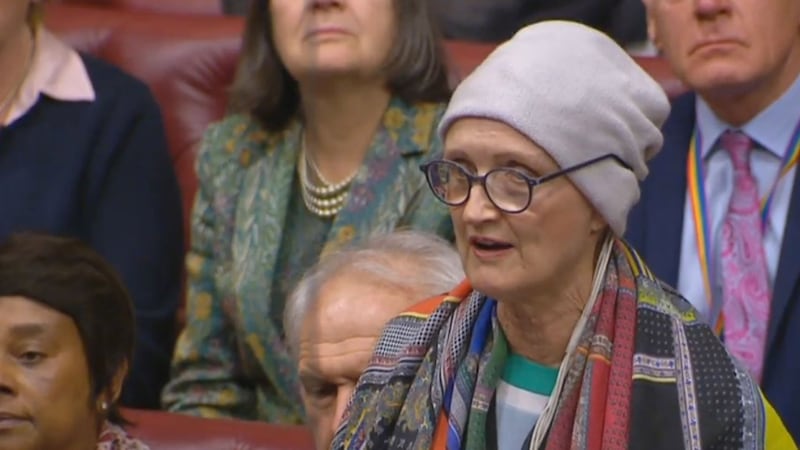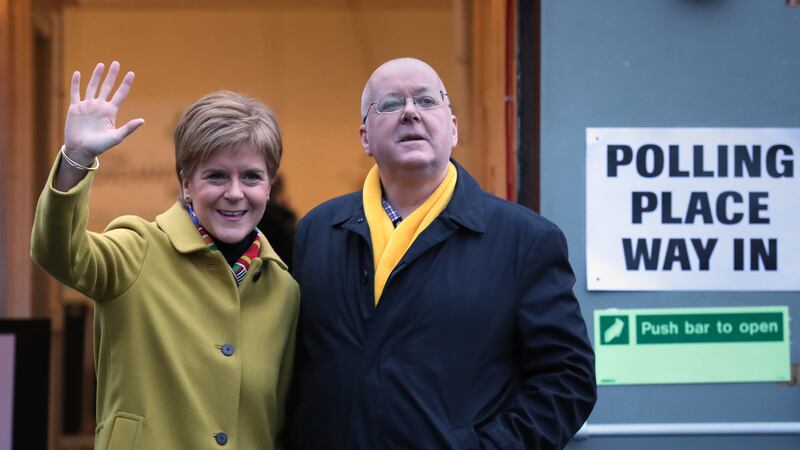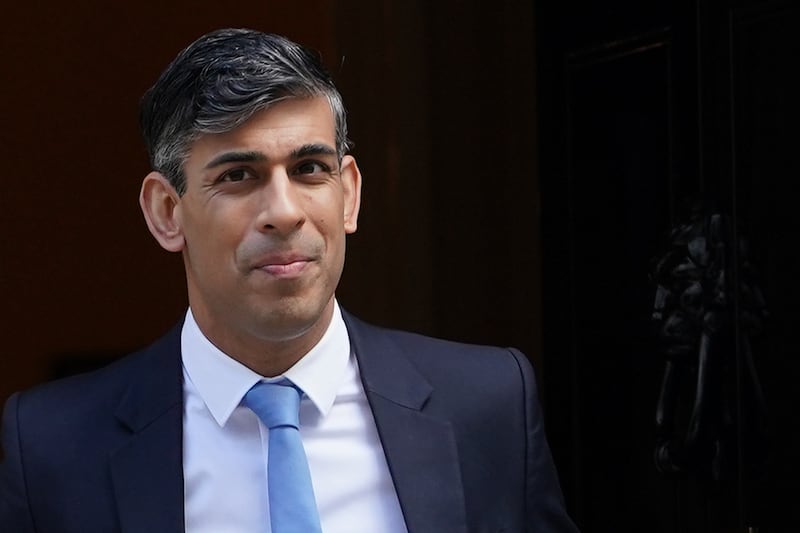A “pink drink” that enables surgeons to precisely target brain tumours has been rolled out across the NHS and could benefit 2,000 patients a year.
The drink, known as 5-ALA, uses fluorescent dye and ultraviolet light to make cancerous cells glow under UV light.
This enables surgeons to more precisely target brain tumour tissue during surgery to remove it, and helps to spare healthy brain cells.
There have also been calls in the House of Commons for more brain cancer patients to take part in clinical trials if “dramatic improvements” in fighting the disease are to be made.
Research suggests that the whole tumour can be successfully removed in 70.5% of cases where 5-ALA is used, up from about 30% without it.
The “pink drink” treatment has been available in some NHS hospitals but will now be available in every neurological centre in England, Health Secretary Matt Hancock has said.
The announcement comes a year after the death of Baroness Tessa Jowell from brain cancer.
The Labour MP was diagnosed with a glioblastoma, the most common cancerous brain tumour in adults, in May 2017, and went on to campaign for better funding and treatments for the disease.
Mr Hancock said: “Tessa Jowell fought passionately and courageously for more recognition of rare brain cancers before she tragically passed away last year.
“One year on, the effects of her tireless campaigning can already been seen.
“I am proud to announce we have now rolled out this groundbreaking treatment aid across the country, transforming care for 2,000 patients every year – a fitting testament to Tessa’s memory.
“A cancer diagnosis is life-changing, but I want every single patient to feel reassured that they have access to the best and fastest care in our wonderful NHS.”
Speaking in the House of Commons, shadow health secretary Jon Ashworth paid tribute to his late Labour colleague
Mr Ashworth said: “It is an extraordinary testament to Tessa’s bravery in the final harrowing months of her life that, when faced with a highly aggressive, very difficult to treat cancer, in full knowledge of the life expectancy associated with such a devastating cancer, Tessa led from the front, campaigning for better brain cancer treatment for others.”
Mr Ashworth added: “We live in hope of dramatic improvements, but further research is needed, when less than 2% of the £500 million spent on cancer research is dedicated to brain tumours.”
He said: “We also desperately need more involvement in clinical trials.
“The numbers of brain cancer patients taking part in clinical trials is less than half the average across all cancers.
“How will the Government encourage more trials and the sharing of data?”
Mr Hancock responded: “The truth is the amount of research money that went into brain cancer and, therefore, the amount of clinical trials, was too low.”
Mr Hancock said just because brain cancer is difficult to treat “doesn’t mean we shouldn’t try”.
He said: “We have increased the amount of research money going in. I am determined to see an increase in the number of clinical trials, and to make sure that the data from those trials is properly used and openly disseminated.”
He said the NHS is “very good at treating cancer once it is spotted”, but said the UK’s cancer survival rates need to improve through early diagnosis.
Mr Hancock said bringing in more equipment and more staff were also priorities for the NHS.
Emma Greenwood, Cancer Research UK’s director of policy and public affairs, said: “Brain tumours remain a huge challenge, with survival barely improving over the last 30 years, and making 5-ALA available across the NHS is one of Dame Tessa Jowell’s many legacies.”








